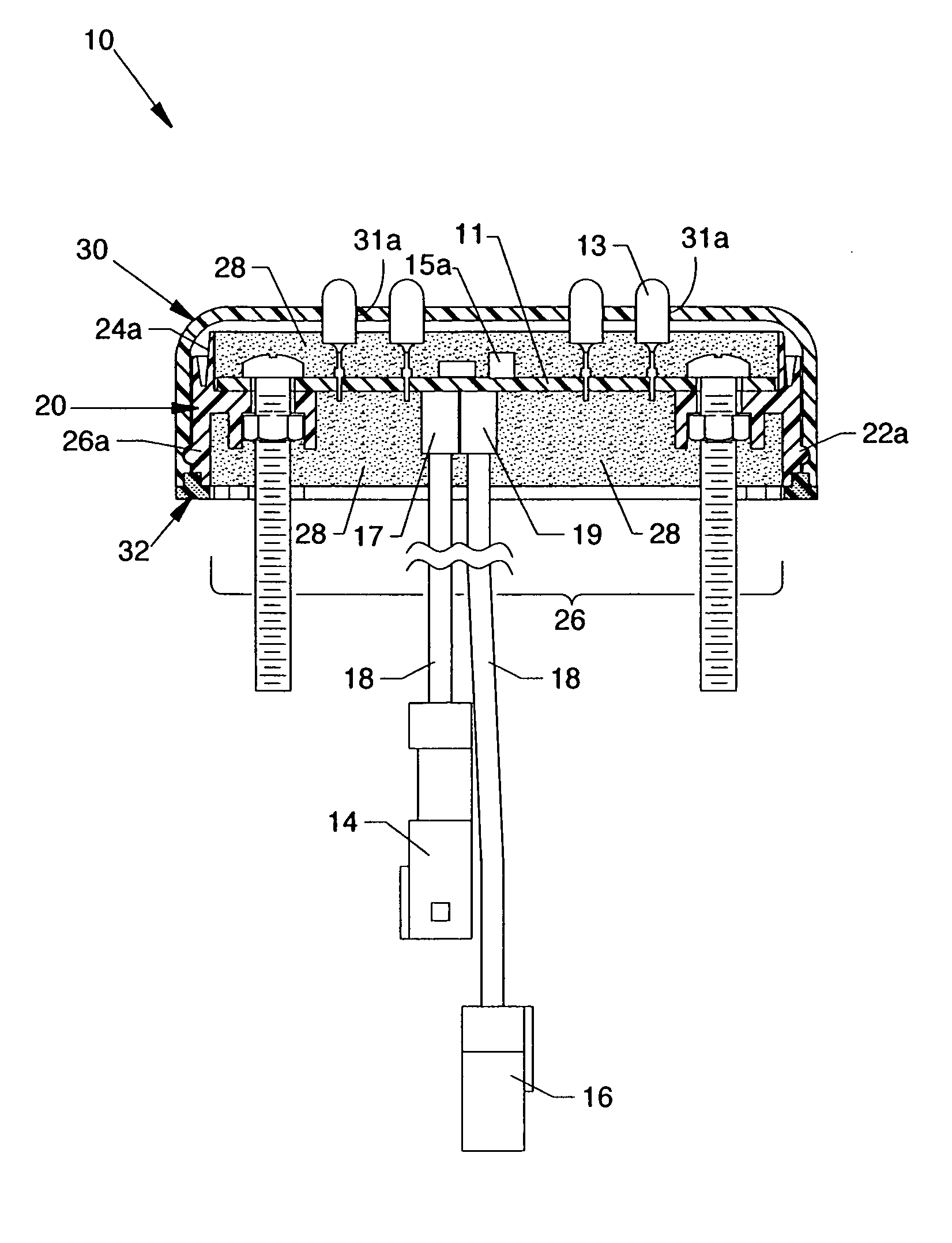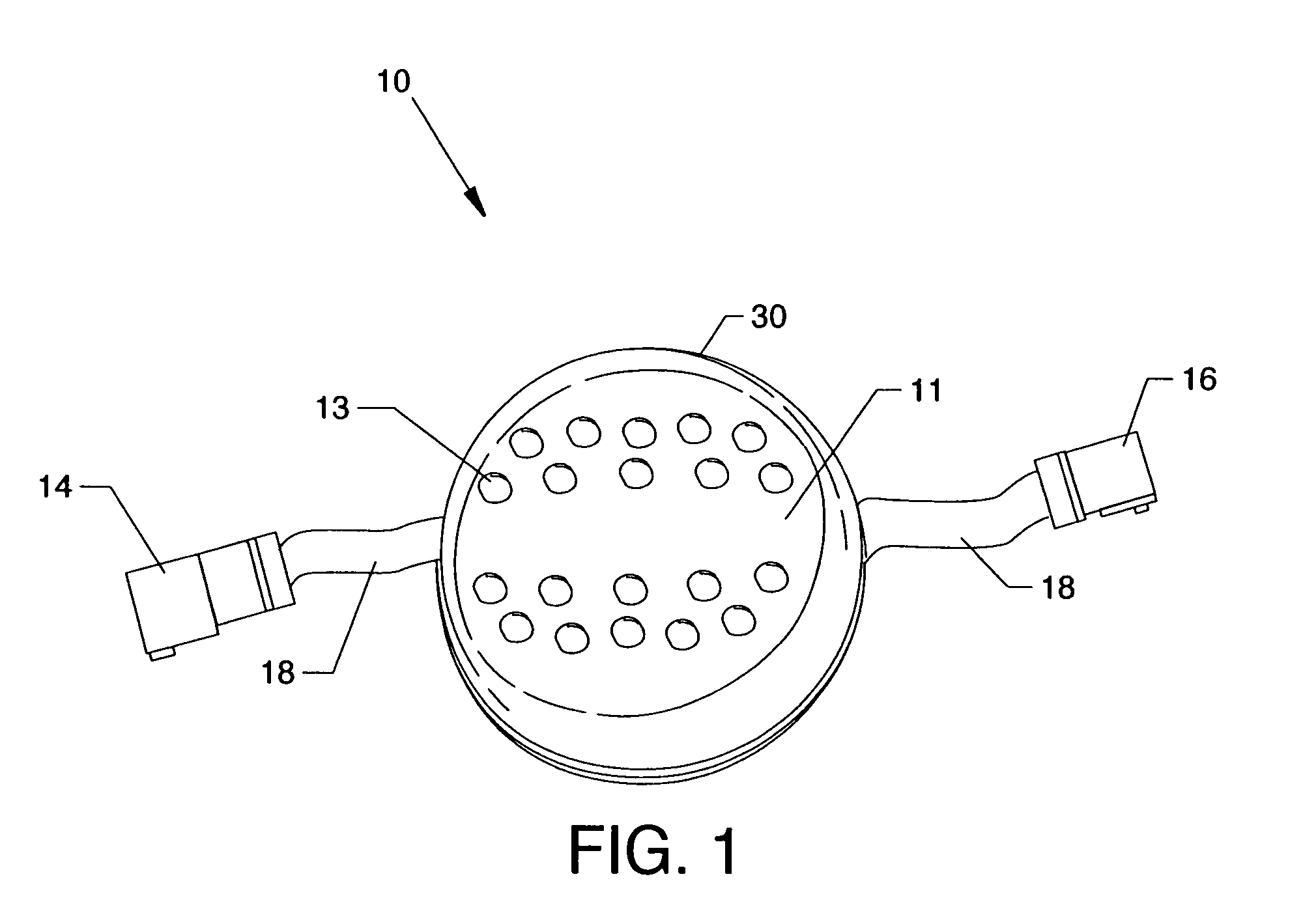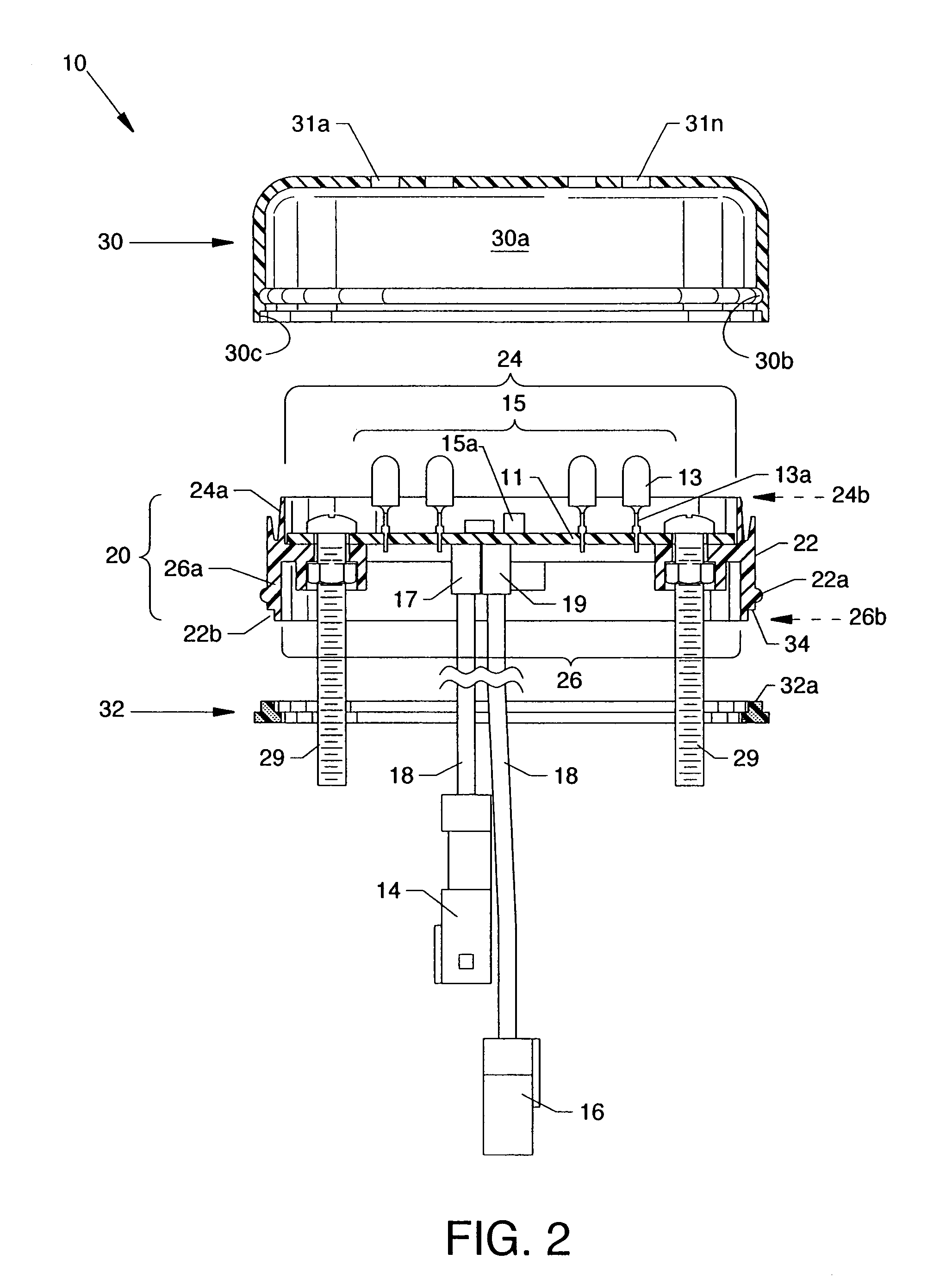Flexible pixel element fabrication and sealing method
a flexible, pixel element technology, applied in the direction of identification means, electrical apparatus casings/cabinets/drawers, instruments, etc., can solve the problems of more advanced light emitting elements or pixels, such as leds and lcds, that are more expensive to use and replace, and need to protect delicate and vulnerable internal electronic components from failure, etc., to achieve better withstand, improve the longevity of pixel element electronics, and improve the effect of adapted to application
- Summary
- Abstract
- Description
- Claims
- Application Information
AI Technical Summary
Benefits of technology
Problems solved by technology
Method used
Image
Examples
Embodiment Construction
[0046]FIG. 1 is an isometric view of a preferred embodiment of discrete flexible pixel element 10 of the present invention. The flexible pixel element 10 embodies a printed circuit board assembly (not shown) on which various surface mounted electrical components are soldered or mechanically fastened to conductor pads by operative electrical connection including a plurality of light emitting elements 13, top encasement cover 30, input connector 14, output connector 16, and flexible cables 18 embodying in assembly a unitary, self-contained, replaceable module. The light emitting elements 13, or pixels, are illuminated when energized by on-board pixel element drivers (not shown) to produce a visual output in the form of emitted light. In a preferred embodiment, the light emitting elements 13 comprise a plurality of red, green and blue (RGB) colored LEDs.
[0047]FIG. 2 is a cross section side view of potting assembly 20, a top encasement cover 30, and a bottom gasket 32. Printed circuit b...
PUM
| Property | Measurement | Unit |
|---|---|---|
| height | aaaaa | aaaaa |
| shape | aaaaa | aaaaa |
| Flexible | aaaaa | aaaaa |
Abstract
Description
Claims
Application Information
 Login to View More
Login to View More - R&D
- Intellectual Property
- Life Sciences
- Materials
- Tech Scout
- Unparalleled Data Quality
- Higher Quality Content
- 60% Fewer Hallucinations
Browse by: Latest US Patents, China's latest patents, Technical Efficacy Thesaurus, Application Domain, Technology Topic, Popular Technical Reports.
© 2025 PatSnap. All rights reserved.Legal|Privacy policy|Modern Slavery Act Transparency Statement|Sitemap|About US| Contact US: help@patsnap.com



